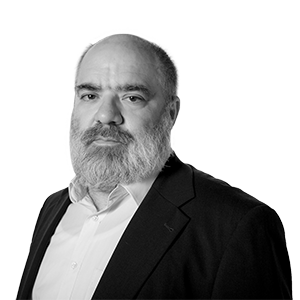

Some friends laugh at the absurdities - or oddities: it depends on how you look at it - that I keep on the shelves of my small library. A few months ago it underwent a severe restructuring (we have a fireplace, which makes things easier). After dusting piles of papers that I hadn't looked at for decades, I stumbled upon a gem of 20th century political literature: a hagiography of Kim Il-sung in two huge, luxurious volumes full of photographs, published by the Korean regime itself in the late 1970s. Kim Il-sung, grandfather of the current president of the Democratic People's Republic of Korea, is perhaps the Cold War leader who took the cult of personality furthest towards paroxysm. Stalin and Mao do not even come close to him. In addition to being the founder of the first communist monarchy in history, Comrade Kim Il-sung is today one of the few corpses in the world who occupies a position of high responsibility. I know it sounds strange, but it is literally so.
Indeed, the founder of the Kim dynasty died in 1994, but on September 5, 1998, the Workers' Party of Korea sponsored a constitutional reform, still in force, which officially declared him perpetual president of the Republic. This title is symbolic, but not imaginary. Since his mandate there is no longer - there can no longer be - any other legitimate president of the Republic. The office can no longer be held by anyone else, which is why it was divided into two. In fact, his grandson Kim Jong-un is officially the chairman of the National Defense Commission. The other half belongs to the chairman of the Supreme People's Assembly, and is currently held by a certain Choe Ryong-hae (his son is married to Kim Jong-un's sister, dynastically reinforcing the Korean socialist monarchy).
Kim Il-sung, however, is not the only dead person in this situation. In the Bolivarian Republic of Venezuela, the figure of the eternal commander has also been instituted, a position that Hugo Chávez, who died on March 5, 2013, holds and will hold forever. Some readers will think that all this is just jest. Well, it is not. As can be seen in this television programme broadcast a few days ago in that country, Hugo Chávez is spoken of as the legitimate president of Venezuela. It starts: "Eternal Commander Hugo Chávez Foundation organises conference «For now and forever» commemorating 8 years of his passage to immortality". My goodness... If you listen to the recording you will notice that throughout the present tense is used, not the past tense.
A political legitimacy that never expires? It is surely an extravagance, a delusion, isn't it? It would be very easy to answer in the affirmative and add that we are only dealing with a spurious attitude, and so on. It turns out, however, that not all political and institutional decisions are attributable to rationality. There are many that derive from poorly processed emotions, from collective traumas, from misplaced aspirations, from great frustrations. Consummating them in the form of unreasonable decisions never serves any purpose, but the inertia is so great that they end up being almost inevitable. From a democratic perspective, the legitimacy of an office such as that of president derives from certain regulated processes that translate the majority will of the citizens into a certain parliamentary distribution. Whoever has not submitted to the judgement of the ballot box, or whoever has been discarded by the citizens and does not represent the majority option, may enjoy a subjective symbolic legitimacy, of a pre-modern nature, but in no way can they claim to have effective legitimacy in institutional terms indefinitely. The same can be said of private organisations whose representatives are chosen through a private vote restricted to their members: they only represent themselves,
I do not deny that in the hearts of many Venezuelans Hugo Chávez is their eternal commander. It is very likely, however, that in the hearts of other Venezuelans he represents something very different. From the perspective of representative democracy, all this is resolved by counting the votes that will end up drawing a certain parliamentary majority - or non-majority. The rest are private matters. Respectable, of course, but private. There are people who believe this and there are people who believe that, as always. The denaturalisation of the democratic system begins the moment we give up taking into account the precise result of the electoral processes because we already know we are right and that we will always be right.
Ferran Sáez Mateu is a philosopher
